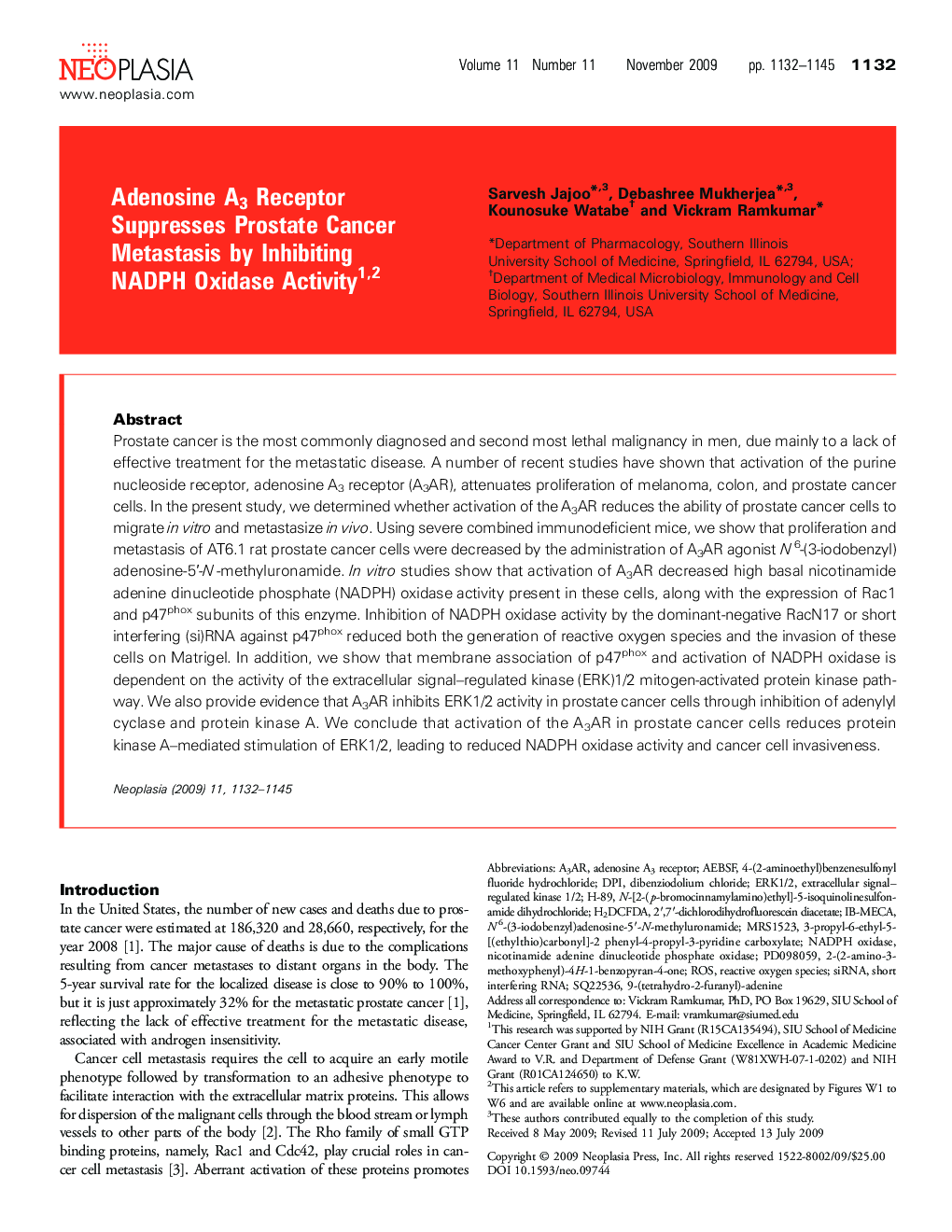| Article ID | Journal | Published Year | Pages | File Type |
|---|---|---|---|---|
| 2151867 | Neoplasia | 2009 | 17 Pages |
Abstract
Prostate cancer is the most commonly diagnosed and second most lethal malignancy in men, due mainly to a lack of effective treatment for the metastatic disease. A number of recent studies have shown that activation of the purine nucleoside receptor, adenosine A3 receptor (A3AR), attenuates proliferation of melanoma, colon, and prostate cancer cells. In the present study, we determined whether activation of the A3AR reduces the ability of prostate cancer cells to migrate in vitro and metastasize in vivo. Using severe combined immunodeficient mice, we show that proliferation and metastasis of AT6.1 rat prostate cancer cells were decreased by the administration of A3AR agonist N6-(3-iodobenzyl) adenosine-5â²-N-methyluronamide. In vitro studies show that activation of A3AR decreased high basal nicotinamide adenine dinucleotide phosphate (NADPH) oxidase activity present in these cells, along with the expression of Rac1 and p47phox subunits of this enzyme. Inhibition of NADPH oxidase activity by the dominant-negative RacN17 or short interfering (si)RNA against p47phox reduced both the generation of reactive oxygen species and the invasion of these cells on Matrigel. In addition, we show that membrane association of p47phox and activation of NADPH oxidase is dependent on the activity of the extracellular signal-regulated kinase (ERK)1/2 mitogen-activated protein kinase pathway. We also provide evidence that A3AR inhibits ERK1/2 activity in prostate cancer cells through inhibition of adenylyl cyclase and protein kinase A. We conclude that activation of the A3AR in prostate cancer cells reduces protein kinase A-mediated stimulation of ERK1/2, leading to reduced NADPH oxidase activity and cancer cell invasiveness.
Keywords
PD0980592-(2-amino-3-methoxyphenyl)-4H-1-benzopyran-4-oneN-[2-(p-bromocinnamylamino)ethyl]-5-isoquinolinesulfonamide dihydrochlorideSQ22536IB-MECAA3ARH-894-(2-aminoethyl)benzenesulfonyl fluoride hydrochlorideAEBSFDPI2′,7′-dichlorodihydrofluorescein diacetateERK1/2H2DCFDAshort interfering RNAROSsiRNAAdenosine A3 receptorNADPH oxidasenicotinamide adenine dinucleotide phosphate oxidaseextracellular signal-regulated kinase 1/2Reactive oxygen species
Related Topics
Life Sciences
Biochemistry, Genetics and Molecular Biology
Cancer Research
Authors
Sarvesh Jajoo, Debashree Mukherjea, Kounosuke Watabe, Vickram Ramkumar,
